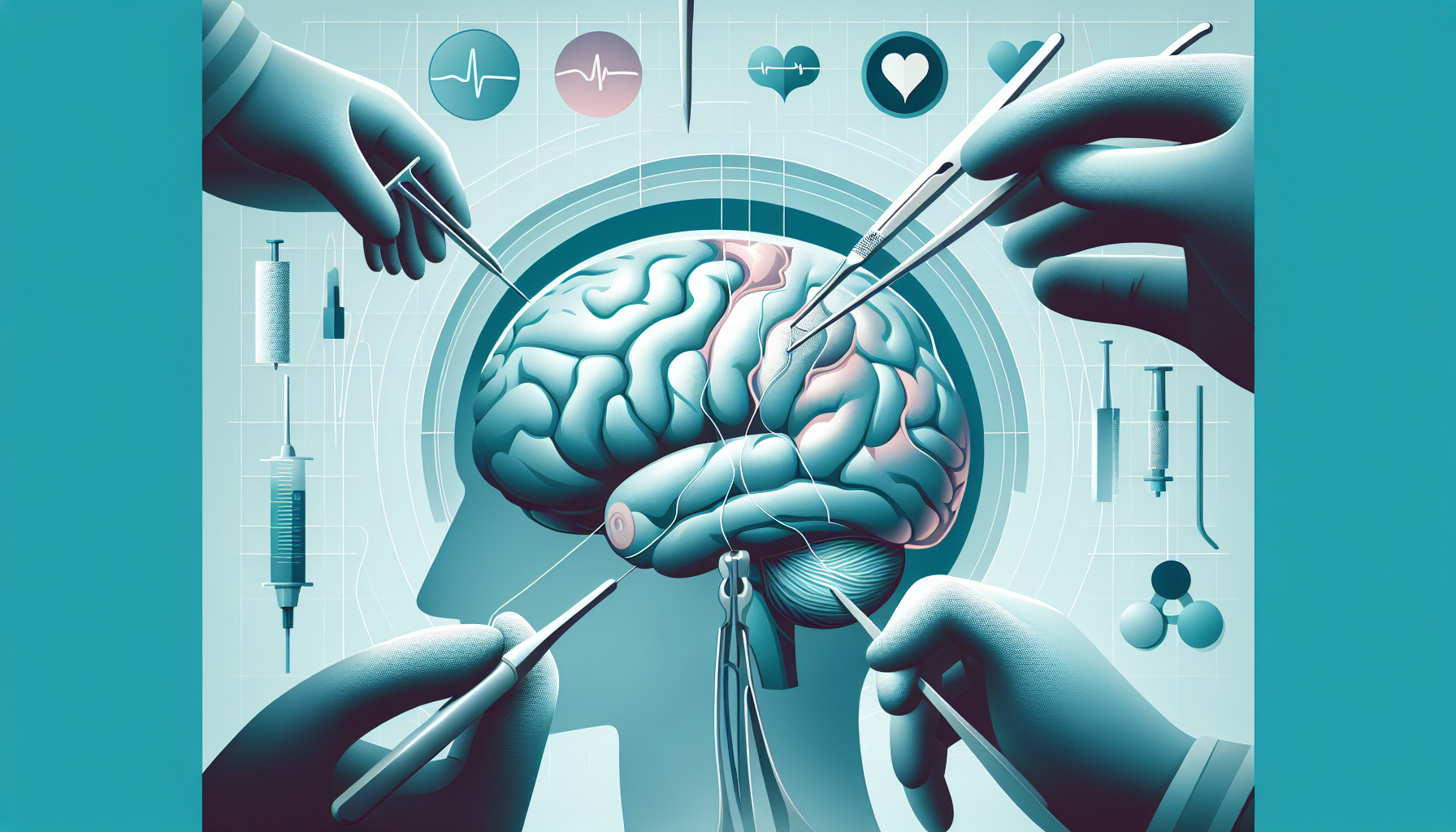Our Summary
This research paper discusses the aftermath of a medical procedure known as Awake Craniotomy (AC). This operation, often used to remove brain tumors, allows doctors to take out as much of the tumor as possible while minimizing the risk of long-term neurological damage. However, the procedure can be stressful for patients, potentially leading to psychological issues and even post-traumatic stress. The study seeks to examine the possible mental health conditions that might arise after undergoing an Awake Craniotomy, as there is currently limited data on this topic.
FAQs
- What is the main advantage of awake craniotomy (AC)?
- Can awake craniotomy lead to long-term psychological effects?
- Is there a confirmed association between neuropsychiatric conditions and awake craniotomy?
Doctor’s Tip
One helpful tip a doctor might tell a patient about craniotomy is to follow all pre-operative instructions carefully, including fasting guidelines and medication instructions. Additionally, it is important to communicate any concerns or questions with your healthcare team before the procedure. After surgery, it is important to follow all post-operative care instructions, including taking prescribed medications, attending follow-up appointments, and resting as needed to aid in the recovery process.
Suitable For
Patients who are typically recommended for craniotomy include those with brain tumours that are accessible through surgery, such as gliomas, meningiomas, and metastatic brain tumours. Awake-craniotomy may be recommended for patients with tumours located in eloquent areas of the brain, such as those affecting speech, motor function, or sensory perception, in order to minimize the risk of postoperative neurological deficits. Additionally, patients with a good overall health status and low risk of complications from surgery may be recommended for craniotomy.
Timeline
Before craniotomy:
- The patient undergoes various diagnostic tests, such as MRI or CT scans, to identify the location and size of the brain tumor.
- The patient meets with the neurosurgeon to discuss the surgical procedure, potential risks, and expected outcomes.
- Preoperative assessments are conducted to evaluate the patient’s overall health and fitness for surgery.
- The patient may undergo preoperative counseling to address any fears or concerns about the surgery.
After craniotomy:
- The patient is taken to the operating room and given anesthesia to induce a state of unconsciousness.
- The neurosurgeon performs the craniotomy, which involves removing a portion of the skull to access the brain tumor.
- In an awake craniotomy, the patient may be woken up during the surgery to ensure that critical brain functions, such as speech and movement, are not affected.
- The tumor is carefully removed, and the skull is replaced before the patient is taken to the recovery room.
- Postoperative care includes monitoring for any complications, managing pain, and providing support for the patient’s recovery.
- The patient may undergo rehabilitation therapy to regain lost function and improve quality of life after the surgery.
What to Ask Your Doctor
- What are the potential risks and complications associated with a craniotomy procedure?
- How long is the recovery period after a craniotomy, and what can I expect during this time?
- Will I need any additional treatments or therapies following the craniotomy?
- What is the success rate of the craniotomy procedure for my specific condition?
- How will the craniotomy affect my daily activities and quality of life?
- Are there any long-term effects or complications that I should be aware of?
- Will I need any follow-up appointments or tests after the craniotomy?
- Are there any specific lifestyle changes or precautions I should take after the craniotomy?
- How can I best manage any potential pain or discomfort after the procedure?
- Are there any support groups or resources available for patients who have undergone a craniotomy?
Reference
Authors: Khalil M, Angez M, Saeed Baqai MW, Shamim MS. Journal: J Pak Med Assoc. 2022 Jun;72(6):1239-1240. doi: 10.47391/JPMA.22-74. PMID: 35751348
